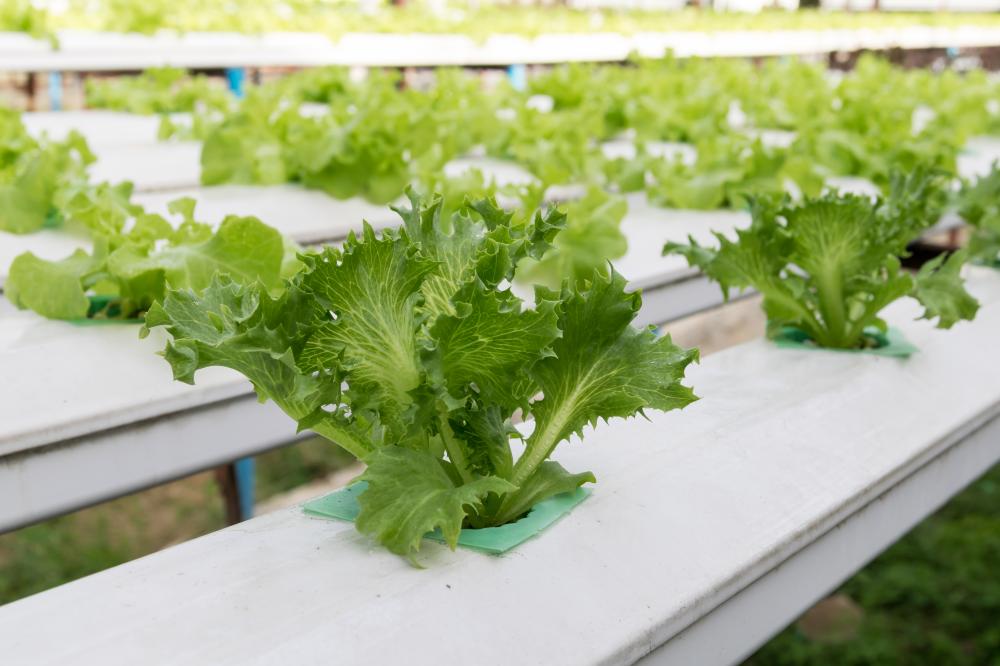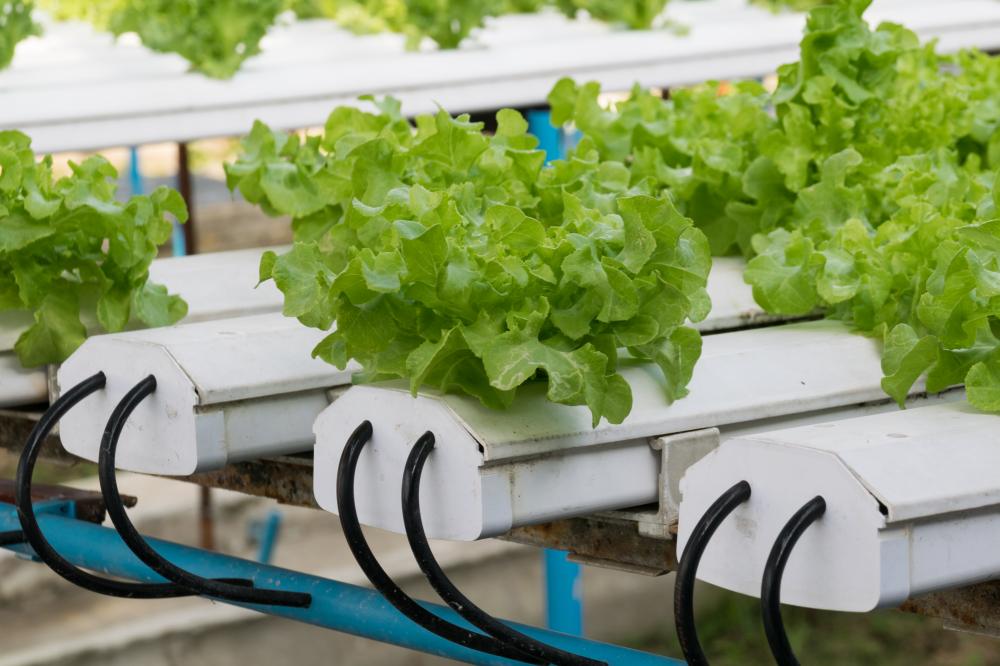Contents
- 1 Introduction to Hydroponics
- 2 Why Choose Hydroponics?
- 3 Starting with Hydroponics for Beginners
- 4 Types of Hydroponic Systems
- 5 Choosing the Right System for You
- 6 Success Tips for Beginners
- 7 Troubleshooting Common Problems
- 8 Benefits of Hydroponics
- 9 The Future of Gardening
- 10 Final Thoughts on Hydroponics for Beginners
- 11 How do I start hydroponics for beginners?
- 12 What is the best hydroponic system for beginners?
- 13 What is the easiest plant to grow hydroponically?
- 14 What 3 things do you need for hydroponics?
- 15 How can I troubleshoot common hydroponic issues?

Introduction to Hydroponics
At Lettuce Be Farmers, we’re on a mission to demystify the art of hydroponics for beginners and seasoned gardeners alike. Hydroponic gardening involves growing plants without soil, nurturing them through water enriched with nutrients. This method can dramatically increase growth speed, yield, and efficiency, especially for those with limited space or adverse soil conditions.
Why Choose Hydroponics?
Why turn to hydroponics, you might wonder? Well, aside from making an indoor garden possible year-round, hydroponics for beginners introduces a soil-free gardening endeavor that conserves water, suppresses weeds, and eliminates soil-borne pests and diseases. It’s a sustainable choice for urban dwellers or anyone interested in maximizing their yield in a minimal space.
Starting with Hydroponics for Beginners
Launching into hydroponics can seem daunting at first, but it’s simpler than it appears. First, understanding the basics is key. Plants need nutrients, light, and water to thrive; hydroponics introduces these elements directly without soil. Picking the right system is crucial, as each type caters to different needs and levels of experience.
Types of Hydroponic Systems
There are several hydroponic systems out there, but let’s discuss a few popular ones among beginners.
- Deep Water Culture (DWC): Perfect for novices, this system suspends plants in a nutrient solution, providing an excellent start with less complication.
- Nutrient Film Technique (NFT): A bit more advanced, NFT circulates a thin film of nutrient solution over the roots, suitable for a variety of plants.
- Ebb and Flow: This system floods the root system with nutrients then drains them, simulating natural cycles. It’s versatile but requires a bit more attention to detail.
Choosing the Right System for You
When venturing into hydroponics for beginners, assessing your space, budget, and desired level of involvement is imperative. Each system has its peculiarities. For instance, DWC is cost-efficient and straightforward, making it an ideal starting point. However, as your green thumb grows, you might lean towards more complex systems like NFT or Ebb and Flow, which allow more control and versatility.
Success Tips for Beginners
To embark on a successful hydroponic journey, consider these fundamentals:
- Start small to understand the dynamics of hydroponics without feeling overwhelmed.
- Be vigilant about your system’s maintenance needs. Regular checks will prevent malfunctions.
- Experiment with different plants to discover what works best in your setup.
Troubleshooting Common Problems
Even the greenest of thumbs encounter challenges. In hydroponics, issues like nutrient imbalances, inadequate lighting, or improper pH levels can stump growth. Happily, most problems are preventable with routine checks and balances. Staying proactive by monitoring your plants and systems closely paves the way for lush, fruitful yields.
Benefits of Hydroponics
Stepping into hydroponics opens a world of advantages. Notably, it permits growing fresh produce year-round, irrespective of external weather conditions. It’s a method that respects our planet, consuming less water and requiring fewer chemical interventions than traditional soil gardening.
The Future of Gardening
As we move forward, the significance of sustainable and efficient gardening methods becomes increasingly clear. Hydroponics for beginners not only introduces novice gardeners to this world but also paves the way for a future where anyone can grow their own food, regardless of location or space constraints.
At Lettuce Be Farmers, we believe that introducing individuals to hydroponics for beginners is just the initial step. Through sharing knowledge, tips, and personal gardening stories, we aim to cultivate a community passionate about growing plants in harmonious, innovative ways that benefit our world and its inhabitants.
Final Thoughts on Hydroponics for Beginners
Hydroponics for beginners is a journey worth embarking on. It’s an exploration of growth, not just for the plants but for the gardener as well. With every seed germinated and every challenge overcome, knowledge deepens, making each harvest more rewarding than the last. So, whether you’re cultivating a small herb garden in your kitchen or dreaming of lush, year-round harvests, remember that with hydroponics, the possibilities are as limitless as your curiosity.
As we continue to delve into the depths of hydroponics and share our findings, remember, we at Lettuce Be Farmers are here to guide you through every step of your gardening journey. Your success is our passion, and together, we can grow a greener, happier world–one plant at a time.

How do I start hydroponics for beginners?
Starting with hydroponics might seem like charting unknown waters, but it’s quite straightforward once you understand the basics. The first step is choosing a simple system that doesn’t require too much initial investment or technical know-how. Deep Water Culture (DWC) is perfect for this. You’ll need a container for your nutrient solution, an air pump to oxygenate the water, and net pots for your plants. The beauty of DWC is its simplicity, making it less intimidating for beginners.
Next, focus on the core essentials: light, nutrients, and water. Quality grow lights are non-negotiable for indoor setups. As for nutrients, opt for a balanced hydroponic nutrient solution that caters to the specific needs of your chosen plants. Remember, the journey is as rewarding as the destination. Start small, celebrate every little success, and don’t be disheartened by challenges. They’re just stepping stones to becoming a proficient hydroponic gardener.
What is the best hydroponic system for beginners?
For those just dipping their toes in the world of hydroponics, the Deep Water Culture (DWC) system is a beacon of simplicity and efficiency. Its beauty lies in its straightforward design – plants are suspended in a nutrient-rich solution, allowing their roots direct access to everything they need to grow robustly. The minimal moving parts reduce the likelihood of technical issues, and the setup costs are relatively low, making it an excellent choice for beginners. Plus, it’s a system that can easily be scaled up or down, offering flexibility as you expand your hydroponic journey.
What is the easiest plant to grow hydroponically?
Lettuce takes the crown as the go-to beginner plant for hydroponic enthusiasts. It grows quickly, doesn’t demand a lot of light, and you can see results in just a few weeks. But what truly makes lettuce a joy for beginners is its resilience. It’s forgiving of minor mistakes, allowing new gardeners to learn without the fear of catastrophic failure. Besides lettuce, herbs like basil and mint are also excellent choices, thriving in hydroponic systems and bringing fresh flavors to your kitchen with minimal effort.
What 3 things do you need for hydroponics?
At the heart of hydroponics lie three essential pillars: water, nutrients, and light. Water is the lifeblood of the hydroponic system, acting as the carrier for the nutrient solution that feeds your plants. Ensuring your plants have access to a constant, clean water source is critical. Next, a balanced nutrient solution tailored to hydroponics is crucial. These nutrients replace what plants would typically draw from soil, catering to their every need. Finally, light, especially for indoor setups, is vital. Whether you opt for natural sunlight or artificial grow lights, ensuring your plants receive the right amount of light is key to photosynthesis, growth, and ultimately, a bountiful harvest.
How can I troubleshoot common hydroponic issues?
Encountering challenges is a natural part of any gardening journey, hydroponics included. Nutrient imbalances often manifest as discolored or wilting leaves. Investing in a good quality pH and EC (Electrical Conductivity) meter will help you keep these in check, ensuring your plants receive the right balance of nutrients. Inadequate lighting can stunt growth, so make sure your plants are getting enough light based on their specific needs. If you’re facing issues with pests or algae, maintaining a clean environment and using sterile equipment can significantly reduce these problems. Remember, the key to successful hydroponics lies in observation and adaptation. By closely monitoring your plants and adjusting their environment as needed, you can overcome most challenges.
Resources
- U.S. Food and Drug Administration: Foodborne Illness & Contaminants – Pesticides – Information on pesticides and their impact on food safety.
- University of Minnesota Extension: Growing Hydroponic Vegetables at Home – A guide to growing hydroponic vegetables in a home setting.
- National Agricultural Library: Hydroponics – Resources on hydroponic agriculture and sustainable food production.

